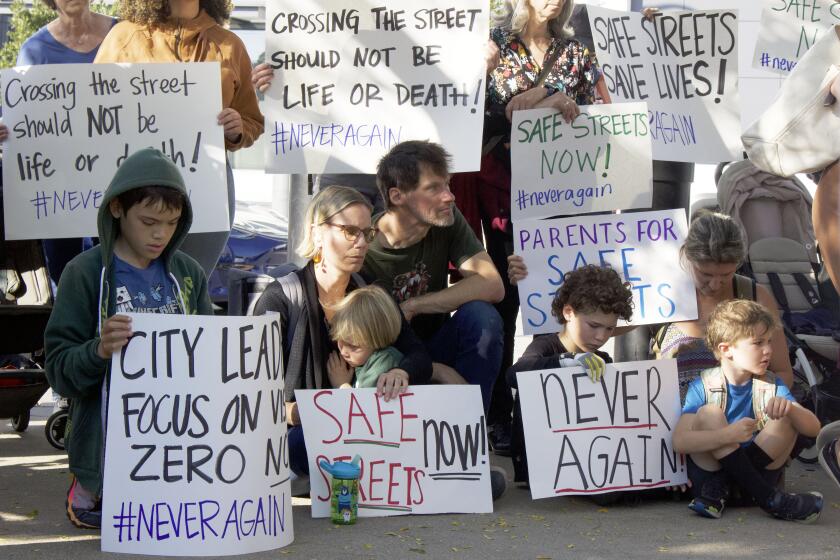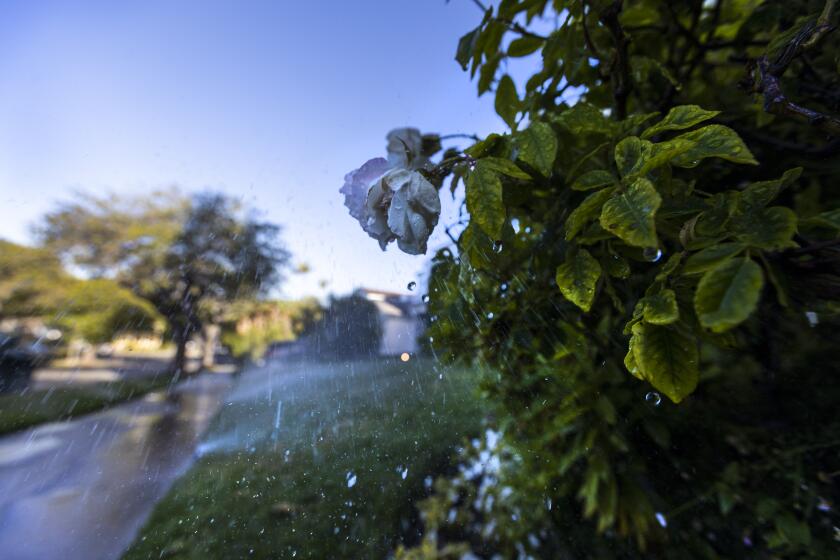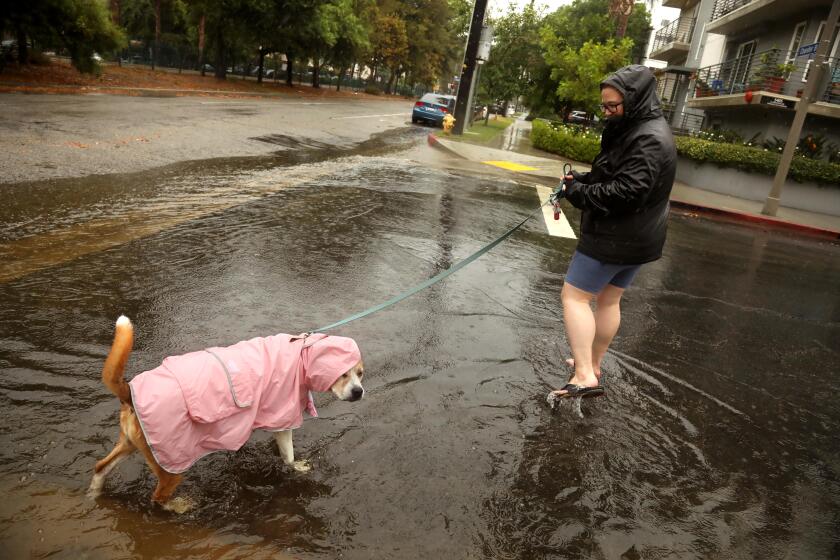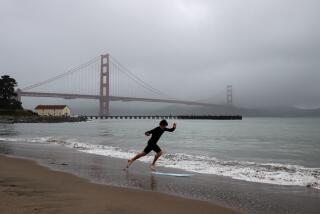Joe Montana played at Candlestick dump. He may live under similar conditions in S.F.
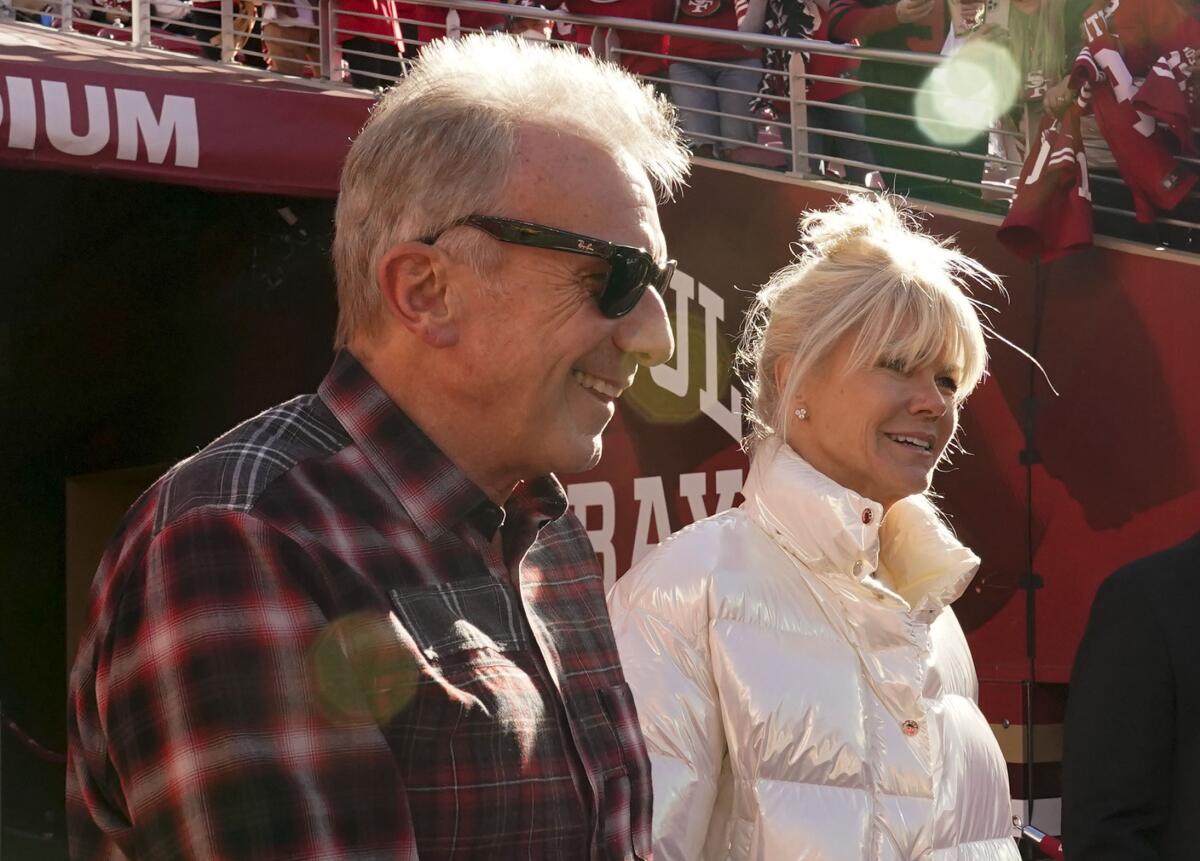
- Share via
Joe Montana played most of the home games of his Hall of Fame career at San Francisco’s Candlestick Park, a place noted for its “far from pleasing aroma.”
The legendary 49ers quarterback may be living under similar conditions these days.
Montana and his neighbors have filed a lawsuit against San Francisco that alleges “hazardous, toxic, dangerous and unsafe” conditions have allowed “highly contaminated and toxic fecal and other raw sewage matter” to overflow into their homes.
Montana and his wife, Jennifer, are among more than 50 plaintiffs in a lawsuit filed Aug. 24 in San Francisco County Superior Court, following claims filed earlier this summer. All of the plaintiffs reside in the Marina District, a neighborhood along the northern shore of the city.
San Francisco, like Los Angeles, has spent the better part of a decade on an ambitious Vision Zero pledge to reduce traffic-related deaths to zero. It’s not working.
A representative of Montana did not immediately respond to a request from The Times for comment from the four-time Super Bowl champion on the matter.
The lawsuit alleges years of poor maintenance of a drainage and sewage system that disproportionately affects residents of the Marina and other surrounding areas.
“Over the past decade, the City has continued to repair and improve its system ‘upstream’ of the Plaintiffs’ properties having the direct effect of channeling even greater and greater amounts of water and sewage into the areas surrounding Plaintiffs’ properties at a time when no significant ‘downstream’ improvements have been performed,” the lawsuit reads. “The net effect of the City’s actions has been to create more extensive damage to Plaintiffs’ properties.”
The situation worsened during the atmospheric river events of this past winter, according to the lawsuit, with the failure of the storm drainage and sewer system “causing torrents of water and untreated sewage to inundate Plaintiffs’ properties.”
In a tentative settlement, the City of Los Angeles has agreed to repay customers who were charged too much for sewer service from May 2016 to June 2022.
“As a direct result of the December 2022/January 2023 failures of the combined storm drainage and sewer system, a mix of raw sewage and storm water flowed in and around Plaintiffs’ properties, permeating the soils, walls, and floors, and depositing highly contaminated and toxic fecal and other raw sewage matter in and around Plaintiffs’ homes,” the lawsuit reads. “The City has failed to take any remedial steps to properly remove the contaminants from Plaintiffs’ properties and surrounding soils despite knowing that Plaintiffs, their families, their children and other citizens are being exposed to these contaminants on a continuing basis.”
Jen Kwart, a spokesperson for City Atty. David Chiu, said in a statement emailed to The Times:
“The intensity and duration of the storm that hit the City on December 31, 2022, was almost unprecedented. It was the strongest storm to hit San Francisco in more than 170 years. The storm, and not the City’s infrastructure, was responsible for widespread flooding throughout the City. We are reviewing the complaint and will respond in court.”
The plaintiffs are seeking damages as well as attorney’s fees and other costs. They are demanding a jury trial.
Days of preparedness ahead of Hilary appear to have paid off in L.A. No traffic fatalities were reported on city streets despite the record rain.
More to Read
Sign up for Essential California
The most important California stories and recommendations in your inbox every morning.
You may occasionally receive promotional content from the Los Angeles Times.
